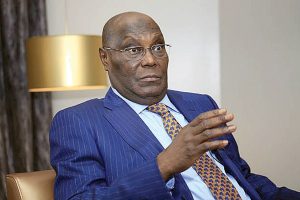
In a significant turn of events, the presidential candidate of the Peoples Democratic Party (PDP), Atiku Abubakar, and his Labour Party counterpart, Peter Obi, have expressed their outright rejection of the recent judgment passed by the Presidential Election Petition Tribunal. The tribunal upheld the election of President Bola Tinubu, reaffirming his victory.
Kehinde Edun, the Legal Adviser to the Labour Party, has firmly stated their intention to challenge this verdict at the Supreme Court. Similarly, Atiku’s Lead Counsel, Chris Uche, SAN, has confirmed that they have received instructions from their client to file an appeal at the Supreme Court, emphasizing that they believe justice has not been served.
“The judgment has been delivered but we have not received justice. Luckily, the law has given us leverage to go on appeal to the Supreme Court. We have instructions from our clients to go to the Supreme Court. The struggle continues,” Chris Uche stated.
The Presidential Election Petition Tribunal (PEPT), which convened at the Court of Appeal in Abuja, commenced the proceedings at 9:40 am. The tribunal, consisting of five members led by Justice Haruna Tsammani, unanimously ruled that the petitions filed by Atiku and Obi, along with their respective parties, lacked merit. They went on to uphold President Tinubu’s electoral victory in the February 25 presidential election.
In his judgment, Justice Tsammani declared, “This petition accordingly lacks merit. I affirm the return of Bola Ahmed Tinubu as the duly elected President of the Federal Republic of Nigeria. The parties are to bear their cost.”
However, the decision of the tribunal has been met with disappointment and criticism by Atiku and the Labour Party. Kehinde Edun expressed disappointment with the judgment, pointing out that the tribunal unfairly rejected 10 out of their 13 witnesses, which significantly weakened their case. He raised concerns about the court’s demand for witness statements to be filed along with the petitions, which, according to him, contradicts legal procedure.
The next course of action for the Labour Party is to take the matter to the Supreme Court, where they hope for a different outcome. Edun emphasized the importance of addressing these issues not only for the present but also for the future of jurisprudence.
Delivering the judgment earlier on Obi and the Labour Party’s petition, Justice Tsammani noted that the petitioners had failed to provide specific details of the alleged irregularities in the election, such as the locations of the alleged infractions and polling units where they claimed rigging occurred.
Furthermore, the tribunal dismissed Obi’s claim of fictitious results recorded by the Independent National Electoral Commission (INEC) for Tinubu and the All Progressives Congress (APC), as well as their failure to specify figures allegedly reduced from their election results in different states.
In response to these developments, the Labour Party has indicated its intention to consult with its legal team and assess the next steps. President Tinubu, on the other hand, has welcomed the judgment and expressed his renewed commitment to serving all Nigerians, irrespective of their political affiliations, faiths, or tribal identities.
In conclusion, the rejection of the tribunal’s verdict by Atiku, Obi, and the Labour Party sets the stage for a legal battle at the Supreme Court, where the final outcome of this presidential election dispute will ultimately be determined.

FG Declares April 18 And 21 Public Holidays For Easter Celebrations
Mutfwang Bans Night Grazing, Restricts Motorcycles After Fresh Attacks
House Committee Summons Rivers State Sole Administrator For Interactive Session
Dangote Refinery Cuts Petrol Ex-Depot Price To ₦835 Per Litre